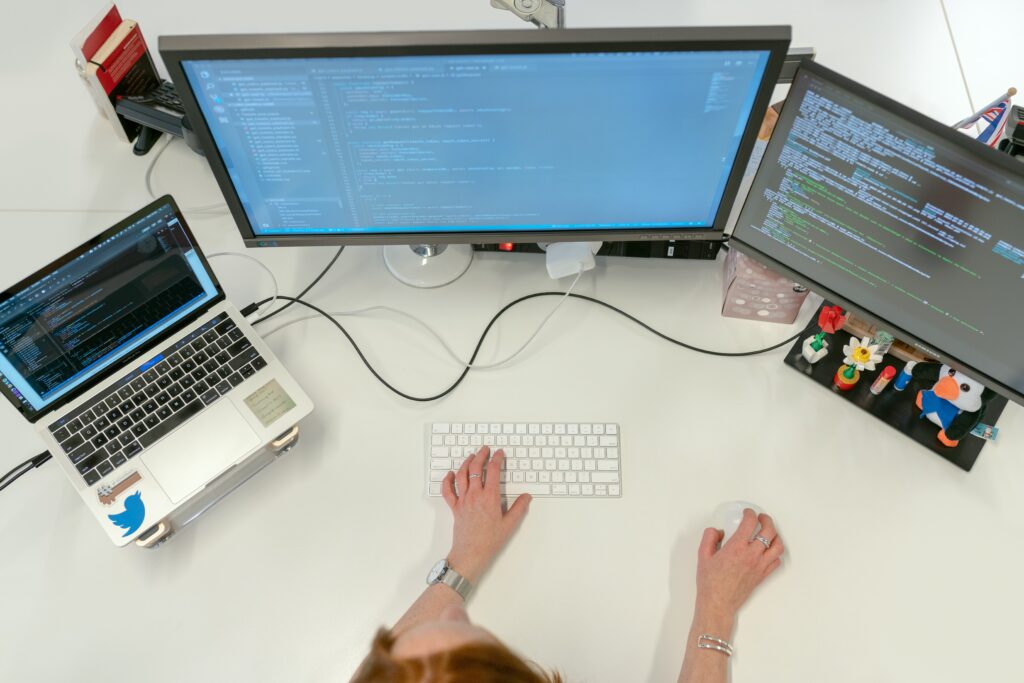C++ is an object-oriented language that allows developers to create efficient and reusable code, making it a popular choice for developing complex software systems, including operating systems, video games, and databases. In this, we’ll provide some tips and strategies on how to master C++ programming.
This allows software developers to organize their code into reusable objects or classes, which can help simplify and modularize large programs. C++ also provides low-level control over hardware resources, making it a popular choice for systems programming. C++ is a compiled language, which means that code must be compiled into machine code before it can be executed. This can result in faster and more efficient code compared to interpreted languages like Python or JavaScript. However, the compilation process can be more complex and time-consuming, requiring the use of a compiler and linker. C++ is also known for its memory management capabilities, including features like pointers, references, and dynamic memory allocation.
Learning to master C++ can be a daunting task, but with the right approach and a bit of dedication, anyone can become proficient in this language.
1. Start with the basics
The first step in mastering C++ is to start with the basics. This means learning the syntax, data types, and control structures of the language. It’s important to have a strong foundation in the fundamentals before moving on to more advanced topics.
One of the best resources for learning the basics of C++ is the C++ Primer, which provides a comprehensive introduction to the language. Other resources include online tutorials, video courses, and textbooks.
2. Practice, practice, practice
As with any skill, practice is key to mastering C++. It’s important to write as much code as possible, and to work on projects that challenge your understanding of the language.
One great way to practice is to work on coding challenges and puzzles, such as those found on sites like Project Euler or HackerRank. These challenges will help you develop your problem-solving skills and gain a deeper understanding of C++.
Another way to practice is to work on open-source projects. By contributing to open-source projects, you’ll be able to work on real-world code and collaborate with other developers.
3. Read and study code
In addition to writing your own code, it’s important to read and study code written by others. This will help you learn new techniques and gain a deeper understanding of the language.
One great resource for studying code is GitHub, which hosts millions of open-source projects. By exploring GitHub repositories, you’ll be able to see how other developers have solved problems and implemented features using C++.
4. Learn from others
Another key to mastering C++ is to learn from others. This can include taking online courses, attending meetups and conferences, and participating in online communities.
Online courses can provide a structured learning experience and access to expert instructors. Meetups and conferences provide an opportunity to network with other remote software developers and learn from experienced professionals. Online communities, such as forums and chat rooms, provide a place to ask questions and get help from other developers.
5. Use the right tools
Using the right tools can make a big difference in your ability to master C++. Some of the most popular tools for C++ development include Integrated Development Environments (IDEs) such as Visual Studio, Code::Blocks, and Eclipse, as well as text editors like Sublime Text and Atom.
In addition to IDEs and text editors, there are a variety of other tools that can help you debug and optimize your code. These include debuggers, profilers, and memory analyzers.
6. Keep up-to-date with the latest developments
Finally, it’s important to stay up-to-date with the latest developments in C++. The language is constantly evolving, with new features and improvements being added in each new release.
One way to stay informed is to read and master C++ Standard, which defines the language and its features. You can also follow blogs and online communities that cover C++ development, such as the C++ subreddit or the C++ community on GitHub.
Conclusion
In conclusion, C++ is a powerful and versatile programming language that has stood the test of time. With its support for object-oriented programming, low-level control over hardware resources, and memory management capabilities, C++ remains a popular choice for developers who need to create efficient and reusable code. While master C++ can be more complex than other programming languages, it offers a high degree of flexibility and modularity in code design, making it a popular choice for developing complex software systems. It also remains a popular choice for systems programming, as it provides low-level control over hardware resources.
As the language continues to evolve, new features and improvements are being added with each new release. Whether you are a beginner just starting to learn programming or an experienced developer looking to take your skills to the next level, mastering C++ an provide you with a powerful toolset to create efficient and elegant code that solves complex problems.

